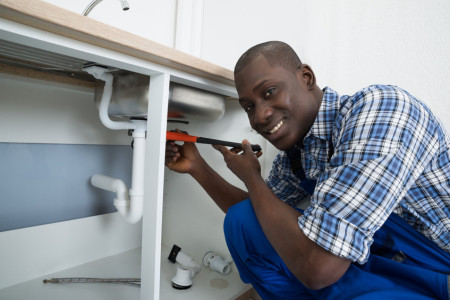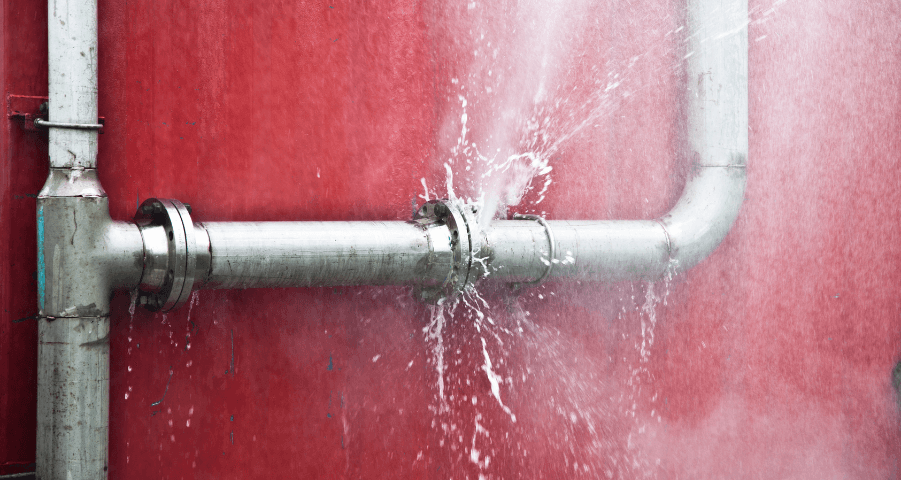Key Advice for Urgent Issues: What to Do Until Help Arrives
Key Advice for Urgent Issues: What to Do Until Help Arrives
Blog Article
The article in the next paragraphs on the subject of Expert Tips for Emergency Plumbing Repairs is pretty much motivating. You should take a peek.

Pipes emergency situations can strike at any time, triggering tension and possible damages to your home. Whether it's a ruptured pipeline, a clogged up drain, or a leaking faucet, recognizing just how to manage the scenario until a professional plumber arrives can save you from further problems. This post supplies crucial emergency situation plumbing ideas to aid you mitigate damage and reclaim control during a plumbing dilemma.
Switch off the Water Supply
The initial step in any type of pipes emergency situation is to shut down the water system. For localized problems, such as a dripping tap or commode, turn off the valve near the fixture. In the case of a significant leakage or ruptured pipeline, locate your home's main water shut-off valve and turn it off right away. Understanding the place of these valves beforehand can conserve beneficial time throughout an emergency situation.
Address Small Leaks with Temporary Fixes
Small leaks can rapidly end up being considerable issues if left untreated. Utilize these short-term repairs up until expert help arrives:
While these fixes aren't permanent, they can help minimize water loss and damages.
Unclog Drains Pipes Securely
A stopped up drain can be a frustrating and messy concern. Below's exactly how to tackle it:
If these techniques do not function, prevent using excessive pressure, as it may worsen the clog.
Handle Overflowing Toilets
An overflowing commode can trigger immediate turmoil. Right here's what you need to do:
Shut down Your Water Heater
In particular emergencies, such as a ruptured pipe, it's smart to shut down your water heater. This stops getting too hot or damage to the device when water stops streaming. Turn off the power supply to the water heater (electrical or gas) and let it cool off to prevent possible dangers.
Momentarily Stop a Burst Pipeline
A ruptured pipe can cause significant water damage in mins. To mitigate the problem:
Call an expert plumbing professional immediately to deal with the trouble completely.
Handle Frozen Water Lines Meticulously
In colder climates, frozen pipelines are a common emergency. If you presume an icy pipeline:
Avoid More Damages
Taking quick action to lessen damages can conserve you time and money in the long run. Here's exactly how:
. Have an Emergency Situation Plumbing Set
Prepare a fundamental plumbing emergency situation set to manage minor issues efficiently. Your kit should consist of:
Having these tools on hand can make a significant distinction in your capacity to handle emergencies.
Know When to Call a Professional.
While quick fixes can help momentarily, certain pipes concerns need instant professional focus. Call a plumbing professional if:.
Immediately getting in touch with a specialist guarantees the concern is solved appropriately and stops more complications.
Verdict.
Pipes emergencies can be frustrating, but with the appropriate knowledge and devices, you can manage the circumstance effectively up until help shows up. By switching off the supply of water, dealing with tiny leaks, and utilizing temporary repairs, you can decrease damage and keep your home safe. Bear in mind, these suggestions are momentary options; constantly speak with a qualified plumbing to manage the root cause of the problem. Prep work and fast thinking are your finest allies in any kind of pipes emergency.
8 Helpful Tips for Managing Plumbing Emergencies at Home
If your plumbing system hasn’t failed once, wait for it because almost everyone has a story to tell. Sometimes, it could be simple emergencies such as a leaking pipe, a blocked cistern, or even a big burst pipe. In situations like this, you need to have some handy tips to save you some money and from possible damages.
Take care of minor issues early.
Sometimes, you could have avoided an emergency by taking proactive measures while it was still early. Some major plumbing emergencies can be a result of an ignored minor issue. We recommend that you have items like plumbing tapes and other related items. A plumbing tape can allow you to manage minor leaks before the plumber arrives.
Cut off the water supply.
This tip is essential in almost any type of leakage problem. For problems like minor leakages in the toilet or kitchen, turn off the supply that takes water to the affected pipes. If the leakage is a major pipe, you must shut off the supply valve to the entire building. This will help you avoid flooding your home and neighbors if you share a flat.
Know your plumbing system
Folks typically move into a new apartment without understanding the water supply around the building. This can prove disastrous if a water emergency arises and the plumber is far away. The previous tip will prove useless if you don’t practice this one. More importantly, know where your water shut-off valve is located – you’ll need that knowledge to prevent potential home floods.
Have some common handy tools
There are lots of plumbing emergencies that you can handle without hiring a plumber. That’s why you must keep some tools available always. Some tools that you can use to fix simple plumbing emergencies easily include plumbing tapes, screwdrivers, thread seal tapes, plungers, pliers, tape measures, and rubber gloves.
Insulate your pipes from cold
You’ll save yourself from many plumbing expenses if you protect your water pipes from the cold. This is because of the harmful effects that cold weather can have on your pipes. During winter, your pipes can burst from being overly expected to freezing temperatures. So, make sure insulators are there to keep the pipes working correctly.
Avoid practices that will clog your toilet.
Many people indulge in practices that can damage the plumbing system of the entire building. One of these is when they use their toilet to dispose-off garbage. They flush all kinds of things, such as paper towels, bandages, hairs, female sanitary products, etc., down the toilet. This will block your toilet in the long run, incurring unnecessary expenditures. Dump such waste in the trash instead.
Check your dials regularly.
Sometimes, there could be leakages in your home without noticing them in time. So, constantly monitor your water meter dial. If the dial is reading when there is nobody using water, this is an indicator that there is leaking. Check for leaks immediately. Call a plumber as soon as possible if you can’t find any.
https://www.constructionplacements.com/8-helpful-tips-for-managing-plumbing-emergencies-at-home/

As an avid reader about Expert Tips for Managing a Plumbing Emergency Until Help Arrives, I thought sharing that topic was a great idea. Are you aware of another person who is serious about the subject? Why not share it. Thank you for your time. Come back soon.
Call Today Report this page